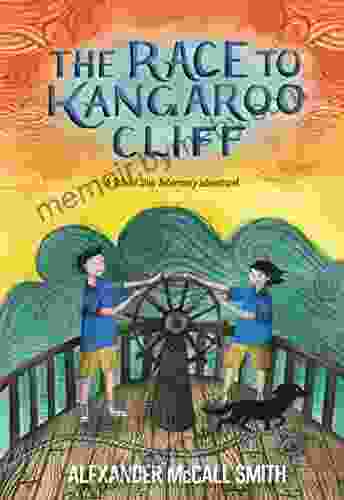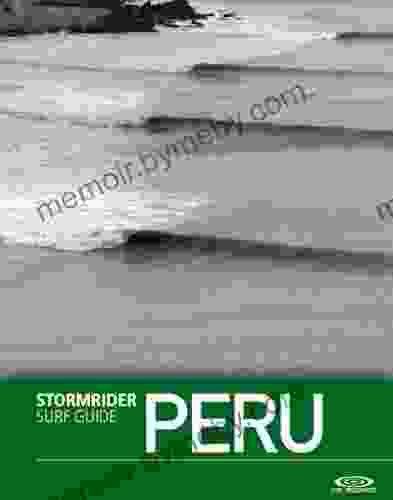Diocletian and the Roman Recovery: A Comprehensive Exploration of a Pivotal Reign

In the twilight of the Roman Empire, as political instability and economic decline threatened to shatter the once-mighty empire, a remarkable figure emerged from the ranks of the military to restore Free Download and usher in a new era of stability and prosperity.
4.4 out of 5
| Language | : | English |
| File size | : | 5560 KB |
| Text-to-Speech | : | Enabled |
| Screen Reader | : | Supported |
| Enhanced typesetting | : | Enabled |
| Word Wise | : | Enabled |
| Print length | : | 278 pages |
That figure was Diocletian, a man of humble origins who rose through the ranks of the Roman army to become one of its most successful generals. In 284 CE, he was proclaimed emperor by his troops, marking the beginning of a reign that would transform the Roman Empire.
Diocletian's Military Campaigns
Diocletian's reign was marked by a series of successful military campaigns that restored the empire's bFree Downloads and secured its frontiers. He defeated the Persians in the east, the Sarmatians in the north, and the rebellious tribes in the west. These victories not only restored the empire's territorial integrity but also boosted its morale.
One of Diocletian's most famous military achievements was his victory over the rebellious Carausius, who had seized control of Britain and Gaul. Diocletian spent several years campaigning against Carausius before finally defeating him in 296 CE. This victory restored Roman authority over Britain and Gaul and further strengthened Diocletian's grip on the empire.
Diocletian's Administrative Reforms
In addition to his military prowess, Diocletian was also a skilled administrator. He introduced a series of reforms that reorganized the empire's government and economy, making it more efficient and effective. These reforms included the following:
- Division of the Empire: Diocletian divided the empire into two halves, the east and the west. He appointed himself emperor of the east and named Maximian as emperor of the west. This division of power was designed to make the empire easier to govern and to prevent any one emperor from becoming too powerful.
- Establishment of the Tetrarchy: Diocletian created a system of government known as the Tetrarchy, in which two senior emperors (Augusti) and two junior emperors (Caesars) ruled jointly. The Tetrarchy was designed to ensure a smooth transition of power and to prevent civil wars.
- Reorganization of the Army: Diocletian reorganized the Roman army, creating a new mobile field army and a new frontier guard. He also increased the size of the army and improved its training and equipment.
- Reform of the Economy: Diocletian introduced a series of economic reforms, including a new tax system and a new coinage system. These reforms were designed to stabilize the economy and to reduce inflation.
Diocletian's Legacy
Diocletian's reign marked a turning point in Roman history. His military campaigns restored the empire's bFree Downloads and secured its frontiers. His administrative reforms made the empire more efficient and effective. And his Tetrarchy ensured a smooth transition of power and prevented civil wars.
Diocletian's legacy is still felt today. The Roman Empire that he helped to rebuild went on to survive for another 1,000 years. And the administrative reforms that he introduced remained in place for centuries.
Diocletian was a complex and controversial figure. He was a brilliant military commander and a skilled administrator. But he was also a ruthless and ambitious man who was willing to use violence to achieve his goals.
Despite his flaws, Diocletian was one of the most important figures in Roman history. He saved the empire from collapse and laid the foundation for its future prosperity. He is a true giant of ancient history.
Further Reading
- Diocletian on Encyclopedia Britannica
- Diocletian on Ancient History Encyclopedia
- Diocletian on Livius.org
4.4 out of 5
| Language | : | English |
| File size | : | 5560 KB |
| Text-to-Speech | : | Enabled |
| Screen Reader | : | Supported |
| Enhanced typesetting | : | Enabled |
| Word Wise | : | Enabled |
| Print length | : | 278 pages |
Do you want to contribute by writing guest posts on this blog?
Please contact us and send us a resume of previous articles that you have written.
 Book
Book Novel
Novel Page
Page Chapter
Chapter Text
Text Story
Story Genre
Genre Reader
Reader Library
Library Paperback
Paperback E-book
E-book Magazine
Magazine Newspaper
Newspaper Paragraph
Paragraph Sentence
Sentence Bookmark
Bookmark Shelf
Shelf Glossary
Glossary Bibliography
Bibliography Foreword
Foreword Preface
Preface Synopsis
Synopsis Annotation
Annotation Footnote
Footnote Manuscript
Manuscript Scroll
Scroll Codex
Codex Tome
Tome Bestseller
Bestseller Classics
Classics Library card
Library card Narrative
Narrative Biography
Biography Autobiography
Autobiography Memoir
Memoir Reference
Reference Encyclopedia
Encyclopedia E Stoops
E Stoops Amelia Pang
Amelia Pang Gary Collins
Gary Collins Amanda M Czerniawski
Amanda M Czerniawski Alexis O Neill
Alexis O Neill Leanne Owens
Leanne Owens Patrick Mcgilligan
Patrick Mcgilligan Keith Ferrell
Keith Ferrell Amber Storck
Amber Storck Alexander Speltz
Alexander Speltz Alfred North Whitehead
Alfred North Whitehead Alison Sherlock
Alison Sherlock Sophie Corrigan
Sophie Corrigan Alex Zadeh
Alex Zadeh Allan Macdonell
Allan Macdonell Jeska Verstegen
Jeska Verstegen Rick Scott
Rick Scott Allen R Angel
Allen R Angel Amani Uduman
Amani Uduman David J Goldman
David J Goldman
Light bulbAdvertise smarter! Our strategic ad space ensures maximum exposure. Reserve your spot today!

 James GrayThe Race to Kangaroo Cliff: A Thrilling Journey Through Time on the Tobermory...
James GrayThe Race to Kangaroo Cliff: A Thrilling Journey Through Time on the Tobermory...
 Donovan CarterUnveiling the Law of the Jungle: A Riveting Exploration of the Natural World
Donovan CarterUnveiling the Law of the Jungle: A Riveting Exploration of the Natural World Ernest ClineFollow ·12.1k
Ernest ClineFollow ·12.1k Dawson ReedFollow ·4.8k
Dawson ReedFollow ·4.8k Terence NelsonFollow ·6k
Terence NelsonFollow ·6k Reginald CoxFollow ·8.9k
Reginald CoxFollow ·8.9k Douglas AdamsFollow ·17.6k
Douglas AdamsFollow ·17.6k Walter SimmonsFollow ·5.1k
Walter SimmonsFollow ·5.1k Trevor BellFollow ·11.6k
Trevor BellFollow ·11.6k Pat MitchellFollow ·11k
Pat MitchellFollow ·11k

 Robert Reed
Robert ReedConservation Habitat Changes And The Rise Of Urban...
As urban areas continue to expand, wildlife...

 W. Somerset Maugham
W. Somerset MaughamRide the Waves: The Ultimate Guide to Surfing Indonesia...
Are you ready to embark on an unforgettable...

 Arthur Conan Doyle
Arthur Conan DoyleThe Widow, the Priest, and the Octopus Hunter: A Literary...
Prologue: A Tapestry...

 Fernando Bell
Fernando BellRide the Waves of Adventure: The Ultimate Guide to...
Unveiling the Surfing Paradise of Peru For...
4.4 out of 5
| Language | : | English |
| File size | : | 5560 KB |
| Text-to-Speech | : | Enabled |
| Screen Reader | : | Supported |
| Enhanced typesetting | : | Enabled |
| Word Wise | : | Enabled |
| Print length | : | 278 pages |












